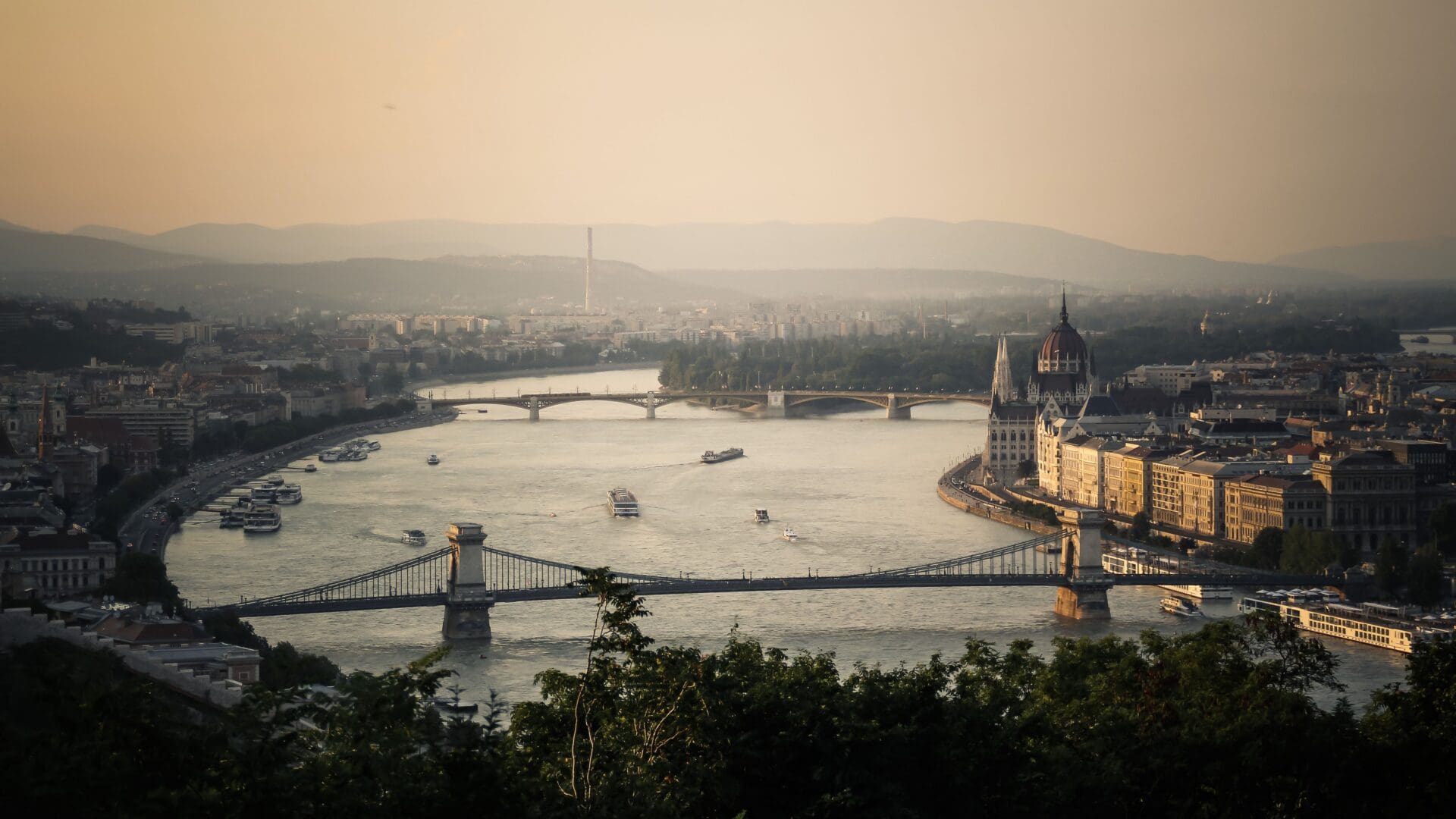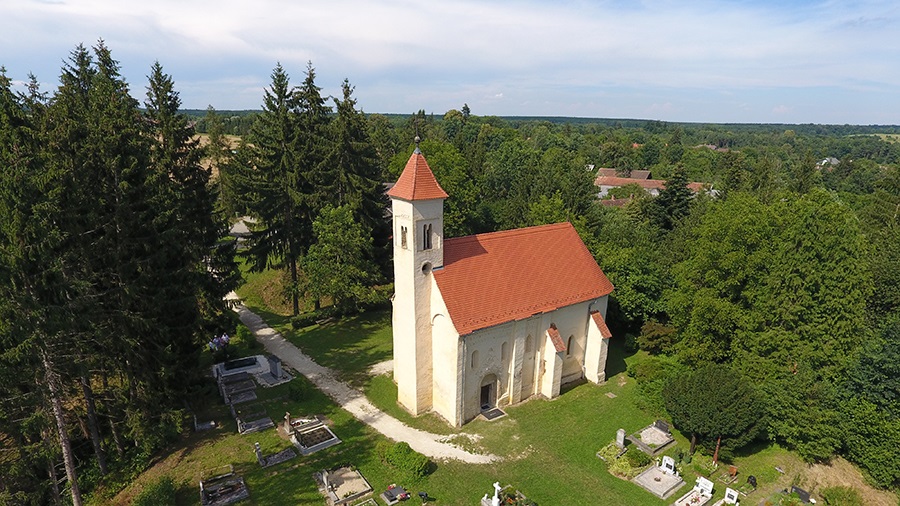I first visited Budapest in 2008, over fifteen years ago. I recall being swept away by the grandness of its architecture and stunning skyline. The stone lions that guard both sides of the Chain Bridge were embossed in my mind all these years. I recall with fondness sitting in one of the city’s many parks and devouring fresh sour cherries (‘meggy’) acquired at a nearby market, and visiting the Dohány Street Synagogue complex. It consists of what’s referred to as the Great Synagogue (the largest in all of Europe), the Heroes’ Temple, the graveyard, the Memorial, and the Jewish Museum. It stands there in large part thanks to funding by Estée Lauder and Tony Curtis.
But I recall being struck by the overall silence, and the numerous signs saying ‘zárva’ (closed) that I’d encounter. Sure, there were flocks of tourists in pursuit of a travel experience that was then even less expensive than Prague, but overall the cityscape was devoid of actual Hungarians. The city was demure and a bit cold. There were no locals overflowing the cafes or restaurants. Back then, a Hungarian man I met told me:
‘Of course, they are busy working multiple jobs just to survive.’
Last year, I returned to Budapest. Older, possibly even wiser…but no more mature. There was a stark difference between the city I visited so many years ago and today’s bustling locale. This time, the restaurants and cafes are overflowing. There’s food from just about any culture and the people, particularly the young ones, seem more hopeful somehow, more full of life and spirit. And, whereas I struggled previously finding anyone who spoke English, nowadays people easily switch between the two, as if it’s the country’s second national language. Kind of like I’ve experienced in Hong Kong. The city is also much more beautiful than I had remembered…or appreciated.
Last year, I had the opportunity to give a keynote at the Moholy-Nagy University of Art and Design (MOME) on ‘Manufacturing Truth in the Digital Age’ (e.g. how algorithms manipulate us), as well as visiting the Brain Bar conference, where I not only listened to some interesting talks, but also got to meet people from all around the world—with all sorts of perspectives. I recall a moment in a conversation that ping-ponged into somewhat of a civil debate between me and another person. A small group grew around us and I was told, later,
how exciting it was to observe two people disagreeing in such a respectful way.
It happens less these days than I wish.
I’ve returned again this year, this time for a much longer stay, as a Visiting Fellow at the Danube Institute—focusing mostly on Artificial Intelligence (AI) and its profound impact on society, how we communicate and how we perceive the world.
Aside from too much food, I’ve also been indulging in conversations (of which there’s never enough and no risk of calories gained). Some of these conversations have been with likeminded people, but many more are with those who see the world differently from me. Occasionally, they will say something that invokes some counterreaction within me, but I always bring everything back to curiosity. That’s ultimately the greatest balancer, I think. If you’re curious, you’ll never be offended. Your goal is to learn, to observe, to understand—not to judge.
If you’re curious, you’ll never be offended. Your goal is to learn, to observe, to understand—not to judge.
What I’ve enjoyed so far is the openness with which we can conduct discourse, and good faith by all. If we disagree, it’s in the form of exploring ideas. I think that’s critical. How else can I test whether my own beliefs are sound? How else can we grow ideas into something better? None of us are really trying to change each other’s minds, we’re just exploring together.
There’s been far too much of a focus changing other people’s views or force-feeding your own. Or worse, silencing others with different perspectives. Even with those individuals I’ve had the most vehement disagreements with, we’ve agreed to keep an open mind to allow our perspectives an opportunity for growth.
But it would be dishonest of me to just say that I want to listen and observe. If I didn’t want my ideas and thoughts to influence others, I wouldn’t share them. I’m hoping to soften some of the edges of thought and provide perspectives that others might not have considered. Just as I’m willing to do with my own. Ultimately, it’s an exchange.
Do I think that’s I can fundamentally change most people’s minds on big issues? Probably not, but wise ways of thinking develop slowly. And even some movement is better than none. Even amongst my own readers, I see a willingness to reconsider some things. And, for now, that’s enough.
So far, I’ve met all sorts of people. Intellectuals who define their ideologies quite differently from each other. I’ve met young artists. Medical professionals. Fellow visitors. And a single mom. They all see Hungary in a different light. Some are in a state of awe and have blinders on, some are highly critical, and others enjoy it but are able to see both its flaws and potential.
I’m in that third category. I understand those who are critical. It has gotten increasingly expensive, particularly for a local. I’ve yet to meet a single person who praises its public health system or bureaucratic tendencies. And
I was shocked to discover the low salaries that many make, including school teachers.
Those are issues one cannot avoid having eyes open to, particularly if one is honest—which is a self-condition of my behind here.
There are of course political disagreements between people, too. Some feel that the government is too oppressive on some human rights issues (particularly LGBTQ+), whereas others see it as a protective measure aimed at ensuring children are safe from ideological interference in their development. Some criticize the government’s stance on certain refugees and view it as racist—whereas others see it as a way to ensure safety and security, as well as preserve Hungarian culture and values. Some think that the current government has too much power and has had it for too long. They want a change. Others are glad to have the stability, think Hungary had grown under the leadership, and/or don’t see any other viable leadership at the moment that would make sense.
I feel like I’m not yet well informed enough to draw conclusions with any deal of certainty. I’m trying not to base my opinions on news articles filled with the opinions of those who do not live here. But I’m listening to all perspectives with openness and…well…curiosity.
What I see in Hungary, beyond its epic beauty, is great potential. Hungarians haven’t been exporting much, but they have
plenty to offer to the rest of the world: design, art, wine, cosmetics, writing, film, and more.
My hope is that the younger generation will develop a great ambition to share their offerings more widely with us.
While Hungary is a country with plenty of complexity and, like any other place, has its issues and imperfections—as well as treasures—I have two choices: criticize and judge from afar, or engage and learn. I choose the latter.








